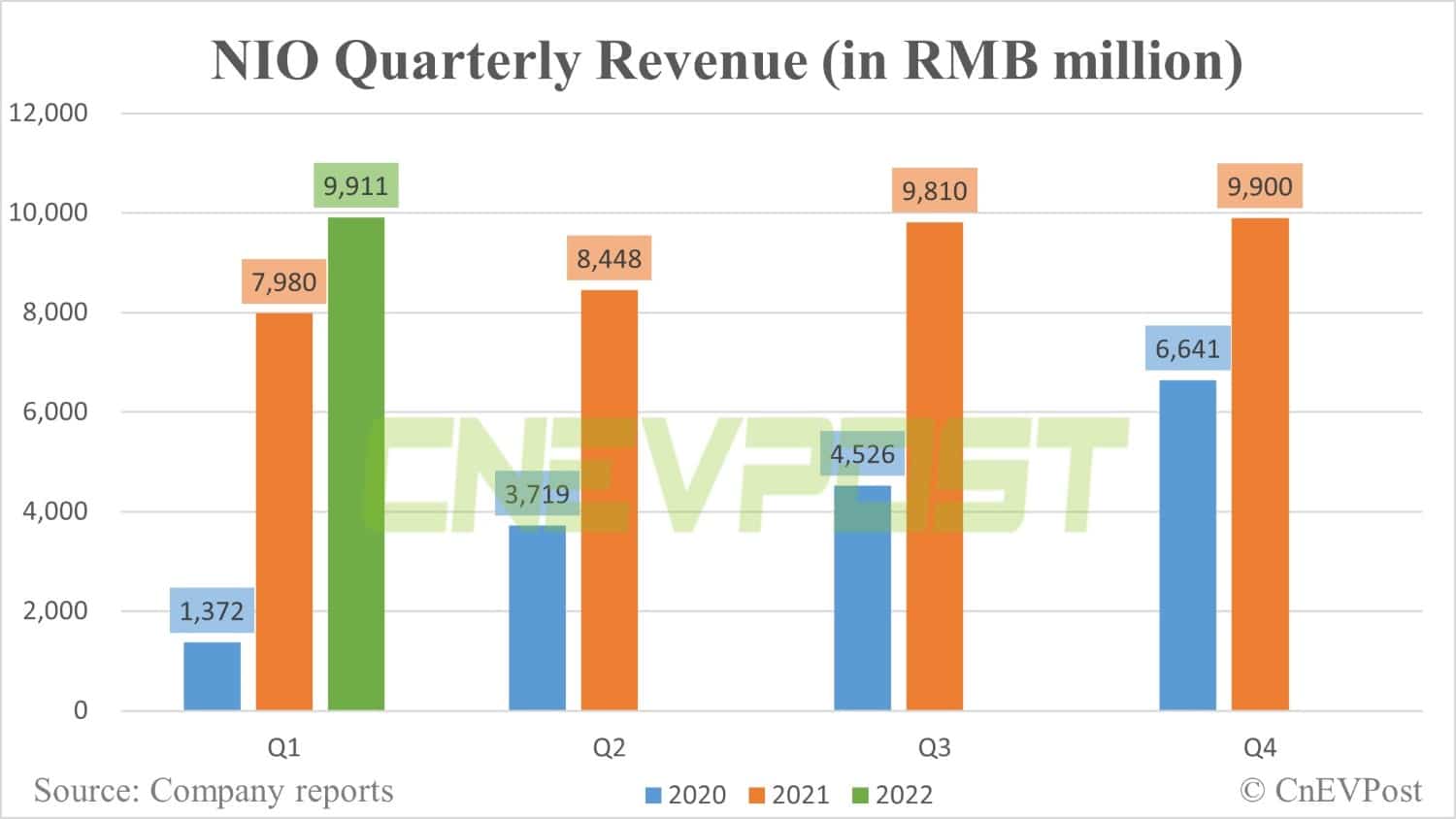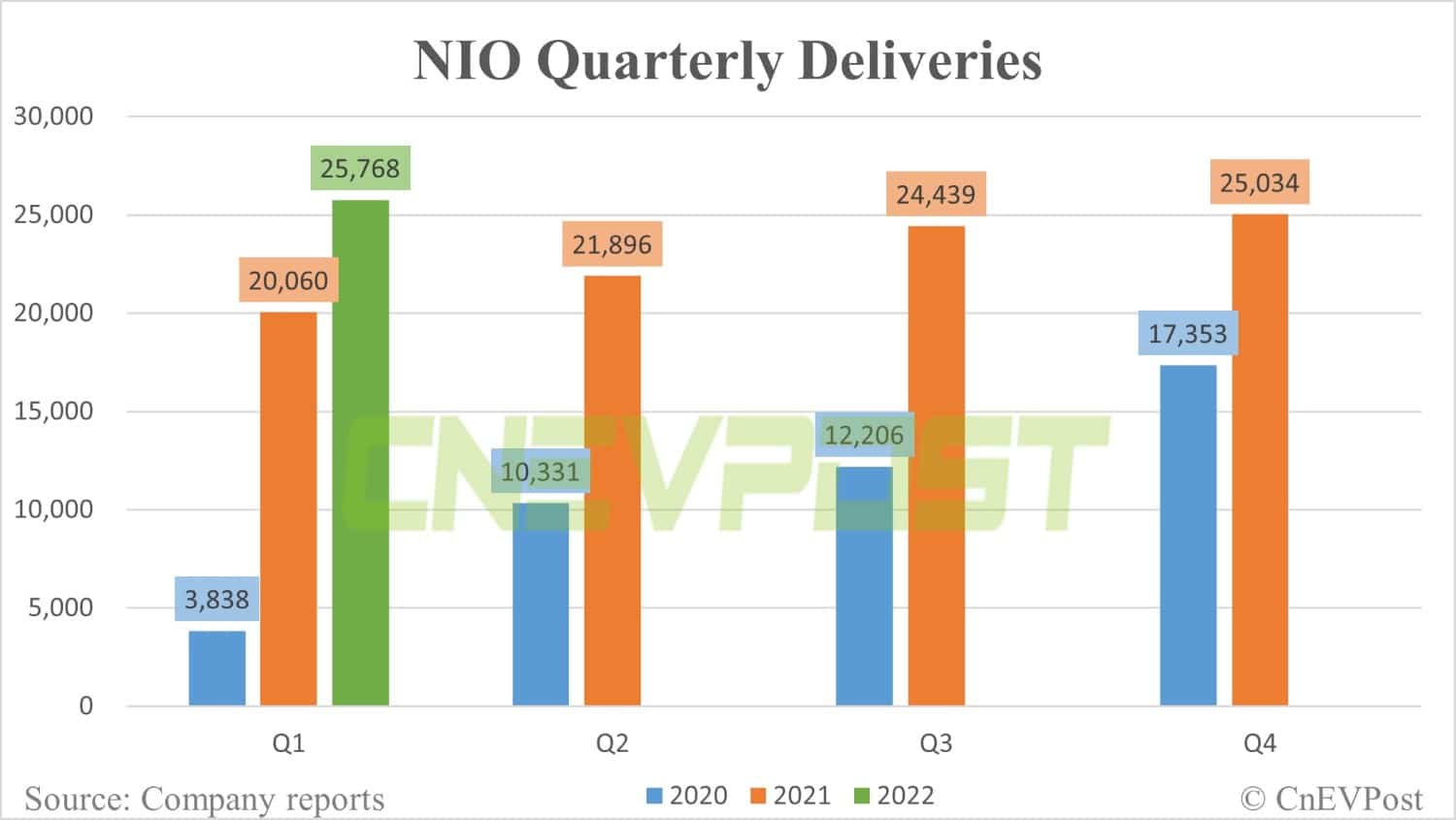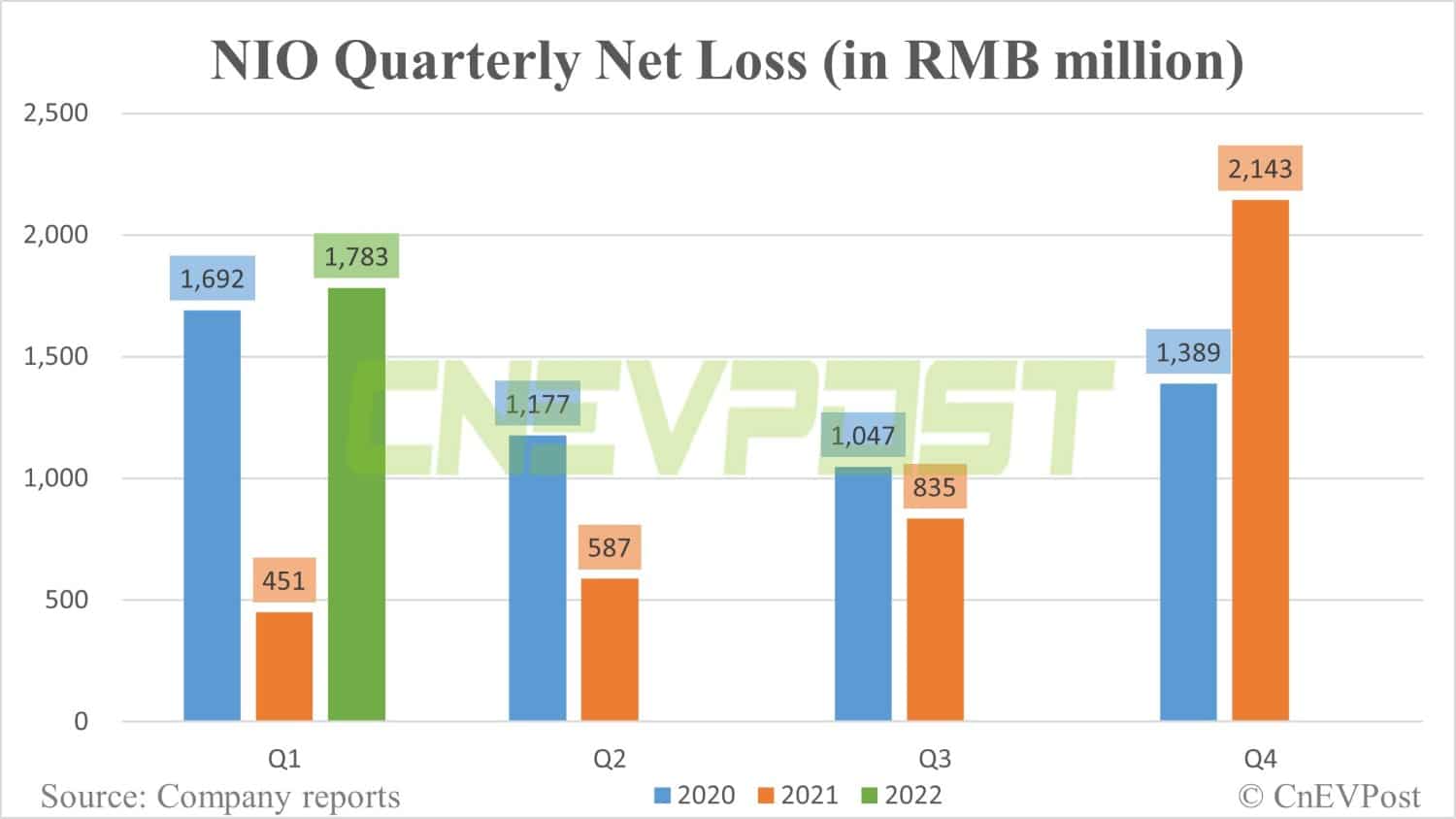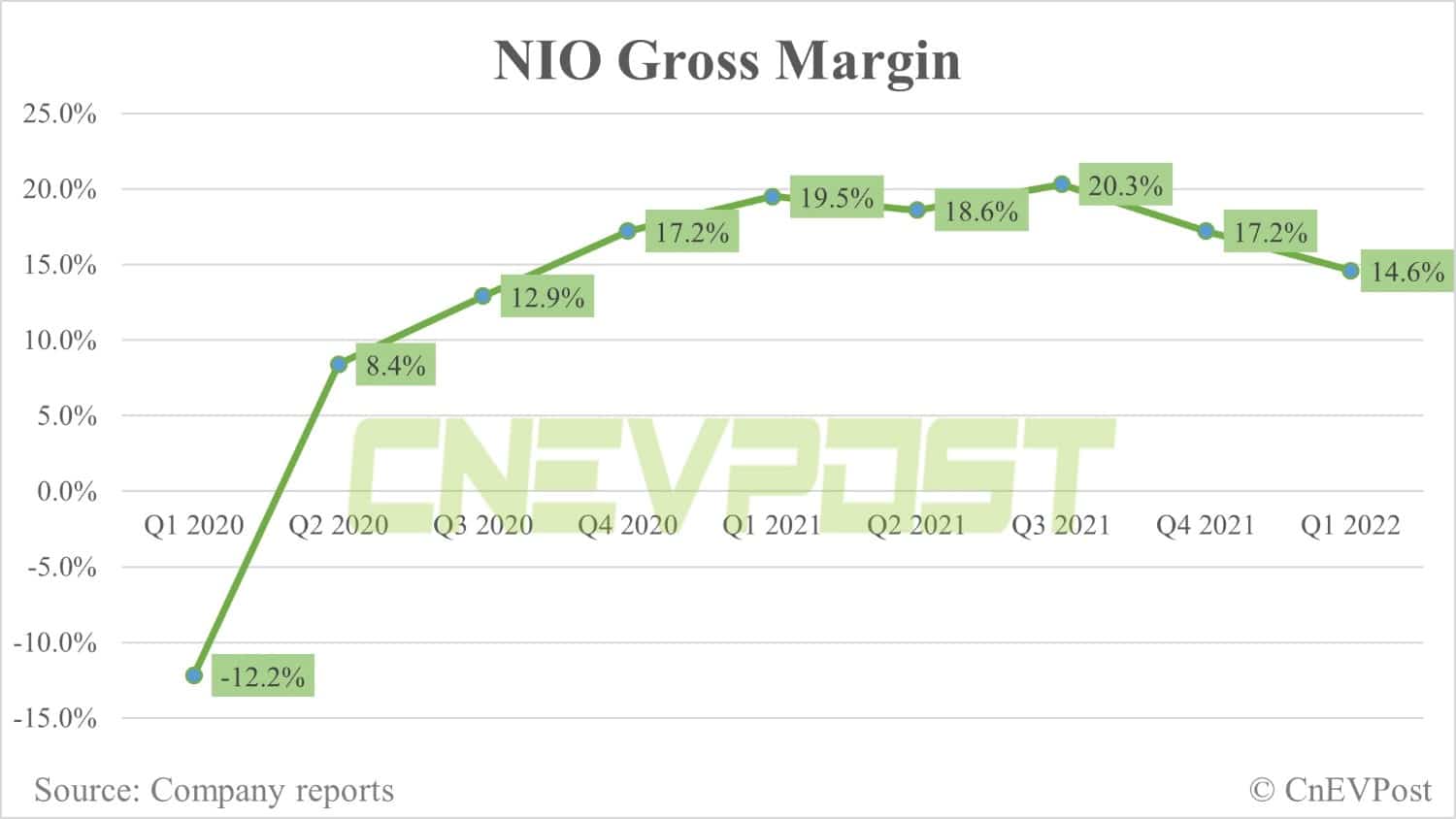Nio refrained from raising vehicle selling prices in the face of rising raw material costs in the first quarter, which had a negative impact on margins.
Nio (NYSE: NIO, HKG: 9866, SGX: Nio) beat Wall Street revenue estimates in the first quarter, but the impact of higher battery costs is starting to show.
The company reported revenue of RMB 9.91 billion ($1.46 billion) in the first quarter, beating market expectations of RMB 9.804 billion, according to unaudited results released today.
This was up 24.19 percent from RMB 7.98 billion in the same quarter last year and essentially unchanged from RMB 9.9 billion in the fourth quarter last year.
Nio reported vehicle sales revenue of RMB 9.24 billion in the first quarter, up 24.8 percent from a year ago and up 0.3 percent from the fourth quarter of last year.
It delivered a record 25,768 vehicles in the first quarter, which was near the upper end of its previous guidance range of 25,000-26,000 vehicles.
Nio reported a net loss of RMB 1.78 billion in the first quarter, below market expectations for a net loss of RMB 2.231 billion. This was up 295.28 percent from the same period last year and down 16.83 percent from the fourth quarter.
The company's gross margin was 14.6 percent in the first quarter, down from 17.2 percent in the fourth quarter and down from 19.5 percent in the same period last year.
The decrease of gross margin over the first quarter of 2021 was attributed to the decrease of vehicle margin and the reduction in other sales margin resulting from the expanded investment in power and service network, Nio said, adding that the decrease of gross margin over the fourth quarter of 2021 was mainly attributed to the decrease of vehicle margin.
Its vehicle margin for the first quarter was 18.1 percent, down from 20.9 percent in the fourth quarter and down from 21.2 percent in the same period last year.
"The decrease of vehicle margin over the first quarter of 2021 was mainly driven by the lower average selling price due to changes in our product mix. The decrease of vehicle margin over the fourth quarter of 2021 was mainly attributed to the increased battery cost per unit," Nio said.
The impact of rising battery costs on gross margins was actually expected, as Nio refrained from raising prices in the first quarter amid a flood of price hikes by Chinese electric car companies.
In late March, when faced with many questions about whether the company would raise prices, Nio co-founder and president Qin Lihong said the company had no such plans at the time.
But as battery costs continue to rise, Nio has not been able to avoid price hikes and announced on April 10 that it will increase prices for vehicles as well as BaaS battery rental fees starting May 10, saying this is due to the continued sharp increase in global raw material prices so far this year.
Raw materials, especially battery material prices, have gone up too much this year and no downward trend is in sight in the near future, Nio founder, chairman and CEO William Li said at the time, adding that the company had intended to take on that pressure itself but was forced to raise prices under the new impact of the Covid outbreak.
"The price increase was forced upon us, and we ask for your understanding," Li said at the time.
Nio expects second-quarter deliveries to be 23,000-25,000 units. Considering that it delivered 12,098 vehicles in April and May, that guidance implies June deliveries of about 10,902- 12,902 vehicles.
Nio expects second-quarter revenue of RMB 9.34 billion to RMB 10.09 billion, representing a 10.6 percent to 19.4 percent year-on-year increase.
The company's cash and cash equivalents, restricted cash and short-term investment were RMB 5.33 billion as of March 31, 2022.
Nio will further strengthen its product offering with the June launch of the ES7, a new mid-to-large five-seat SUV based on the NT 2.0 platform, with deliveries expected to begin in late August, Li said today.
"While making decisive investments in new products, technologies and businesses, we strive to continuously optimize our cost structure, improve operating efficiency and create long-term value for our shareholders," said Steven Feng, chief financial officer of Nio.



